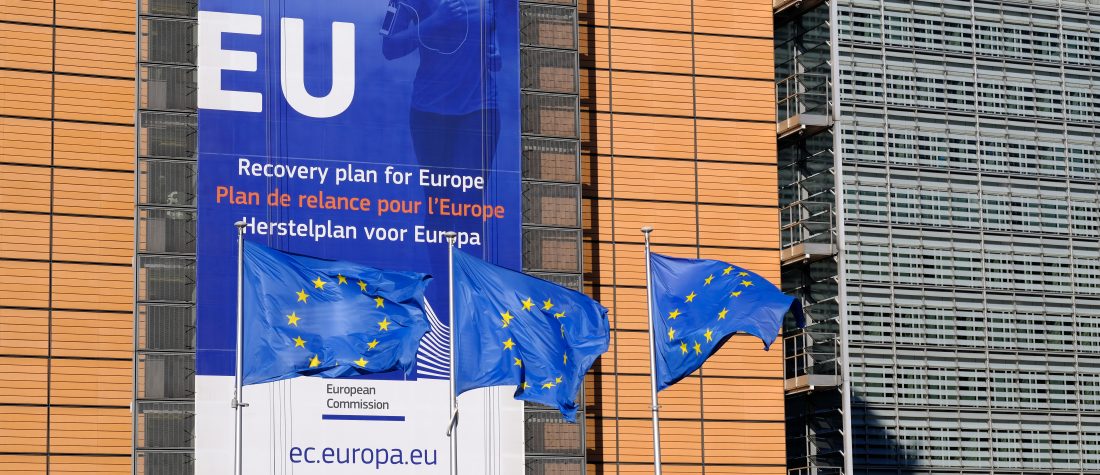In Europe, we are currently witnessing a fundamental shift that marks the times we are living in. The traditional division between eurosceptics and euro-optimists is losing much of its former relevance. Today, some of the most critical positions vis-à-vis Brussels come from the pro-European, even federalist camp. At the same time, in European capitals, voices that were traditionally pleading to leave the EU are now drifting away from their overt pro-exiting campaigns and advocating for “changing” Europe from within. The pro-European trend is mirrored in public opinion: since 2016 – liberal democracy’s annus horribilis – support for Europe has been consistently growing. People across Europe have witnessed the practical downsides of leaving the EU and, most importantly, the inadequacy and insufficiency of trying to address global challenges alone.
However, despite the growing support for European integration, both among politicians and among citizens, very few people are happy with the European Union as it is today. In its current form, it is too slow, too weak, too little, too late… the European project is not delivering on its promises – exactly when these promises are as relevant as they have ever been.
In this changing and challenging context, that is what 2022 will need to be all about: defending Europe’s people, Europe’s sovereignty, defending what Europe has always been standing for. And to do so, the EU will need to change – and change substantially.
The urgency of change becomes evident in multiple critical dimensions. On the one hand, Afghanistan and Aukus have truly reignited the longstanding debates on EU defence. Consensus over the issue is gaining momentum: whoever rules the White House, the EU needs to be more self-reliant in terms of hard power. Neither allies nor enemies will ever respect a weak Europe. Whatever shape and direction we want Nato to take in the future, the EU member states will have to take their fair share of responsibility and integrate in a more systemic and efficient manner. This will strengthen and increase the credibility of both Europe and its allies.
With the EU Defence Summit due to be held early during the French presidency, EU leadership will need to gather up the political will and set into motion the long overdue creation of the European defence union and the European army. Waiting for yet another wake-up call might cost us way too much.
On the other hand, reinforcing Europe’s sovereignty also means beefing up its asylum and migration policies.
As I am writing this, we are in the midst of a severe hybrid attack from Belarus, which is using migrants as weapons and the EU’s weakness as an opportunity. This presents more evidence that border management cannot be an isolated improvisation exercise, left at discretion of individual member states. We are forced to revisit the whole package of common asylum and migration policies, which has been gathering dust since 2015.
The creation of the new EU Agency for Asylum, with a strengthened mandate and increased resources, is an important and symbolic step toward changing the status quo. However, to address the structural deficiencies in this domain, the EU needs to move ahead with a prompt adoption of the full legislative package, including proposals regarding common asylum procedures, clear reception modalities, and division of competences and responsibilities among the member states.
Meanwhile, in the coming months the festering rule of law crisis within the EU itself will inevitably reach its breaking point, because rarely have international and internal policies been so intertwined. We cannot discuss cooperation on migration if national courts are not independent. We cannot talk about solidarity if our members’ governments are unreliable.
The Commission has been postponing any decision on the rule of law mechanism attached to the crisis response fund. But patience is now reaching its limit: both the constitutional court issue in Poland and the risk of corruption in Hungary force the Commission to put its cards on the table. And the outcome will be decisive for the EU’s politics in the years to come.
The problem is institutional: Europe cannot be run with unanimity powers, where the slowest set the pace and the powerful are unwilling to call the shots.
The new year ahead offers a chance to change this. The Conference on the Future of Europe will draw its first conclusions in spring, and making Europe more effective and democratic should be the red thread of those conclusions.
With an ambitious French presidency, a new German chancellor, and a European political cycle reaching its peak between two elections, the stars are now aligned to really put the EU reform back on the table.
It could signify the beginning of an effort to regain people’s trust and faith in Europe. If not, the risk is high that euroscepticism will regain its strength – and will do so with a vengeance. The stakes for the European project are just too high to ignore this opportunity.
Hilde Vautmans is MEP of the Renew Europe Group and the president of the European Liberal Forum


